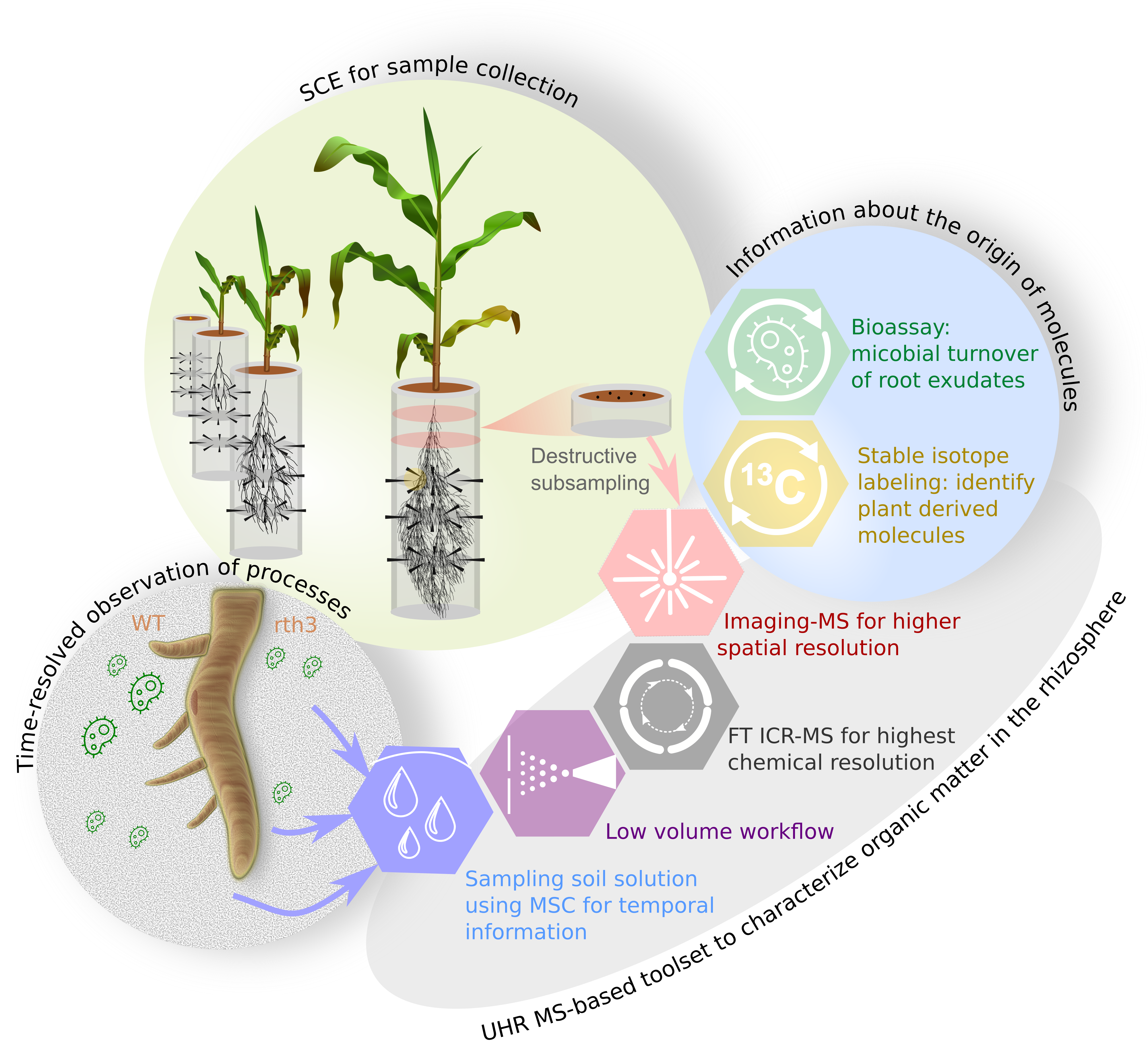Project participated only in SPP-Phase 1
P10 - MoleBIRD
A molecular perspective on plant-microbiome interactions during rhizosphere development

Self-organization in the rhizosphere generates multi-faceted chemical gradients in which the plant-microbe interplay is a key driver. The soil solution is a crucial component of the rhizosphere, where chemical gradients of organic molecules first develop upon growth of roots and introduction of plant-derived carbon. Soil type, environmental factors, plant genotype, microbial community, etc. then all drive the chemical evolution of the soil solution. Emerging chemical and biological pattern of a developing rhizosphere reflect the complex interactions and feed-back loops between these drivers.
This project within the DFG funded priority programme 2089 aims at investigating the spatio-temporal development of small-scale molecular gradients of organic carbon in early rhizosphere development from non-rhizosphere pre-conditions.
We will study root development from two Zea mays genotypes (wildtype and rth3 mutant) grown in soil columns. Ultra-high resolution mass spectrometry (FT-ICR MS) will be used to track the release of organic molecules by roots while X-ray computer tomography (micro-CT) reveals spatial arrangement and age of roots. Furthermore we will apply imaging-MS techniques to get information about the rhizosphere with higher spatial resolution. The developed UHR-MS toolset in combination with a bioassay and stable isotope labelling experiments will also be used to determine the origin of the molecules in the rhizosphere.
Link to English scientific abstract
Link to German scientific abstract
